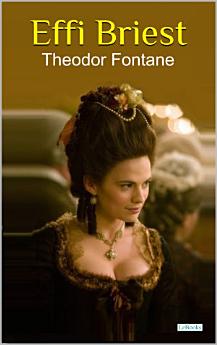Effi Briest
About this ebook
Praised for its subtle psychological insight and restrained narrative style, Effi Briest critiques the oppressive structures of gender, class, and honor that governed life in Imperial Germany. Fontane's portrayal of Effi's inner conflict and ultimate downfall highlights the tragic cost of societal inflexibility and emotional neglect.
The novel's enduring power lies in its quiet but profound exploration of the individual versus society. Effi Briest remains a poignant and timeless reflection on lost innocence, moral hypocrisy, and the enduring human desire for freedom and fulfillment.
About the author
Theodor Fontane was a German writer, widely regarded as one of the most important figures in 19th-century German literature. Born in Neuruppin, in the Kingdom of Prussia, Fontane is best known for his realistic novels that explore the complexities of social class, personal morality, and historical change. He was a leading representative of poetic realism in Germany and is often considered the most significant German-language novelist between Goethe and Thomas Mann.
Fontane's literary career gained momentum with his shift to fiction, particularly his novels set in Prussian society. His works are marked by a subtle and observant style, often portraying the tensions between tradition and modernity, and the often rigid roles of gender and class. Among his most acclaimed novels are Effi Briest (1895), Der Stechlin (1898), and Irrungen, Wirrungen (1888), which reveal his mastery in depicting human psychology within the framework of societal expectations.
Fontane's writing stands as a pivotal contribution to German realism, offering nuanced portrayals of middle- and upper-class life in 19th-century Prussia. His attention to detail, dialogue, and internal conflict places him among the foremost psychological novelists of his era. He influenced later writers such as Thomas Mann and Günter Grass, not only through his themes but also through his stylistic precision and commitment to realism.
Fontane's novels are notable for their restrained yet incisive critiques of societal norms and their compassionate portrayals of characters navigating moral dilemmas. His work anticipated many of the issues of modern literature, including individual autonomy, gender roles, and social mobility, while remaining deeply rooted in the historical and cultural landscape of his time.








